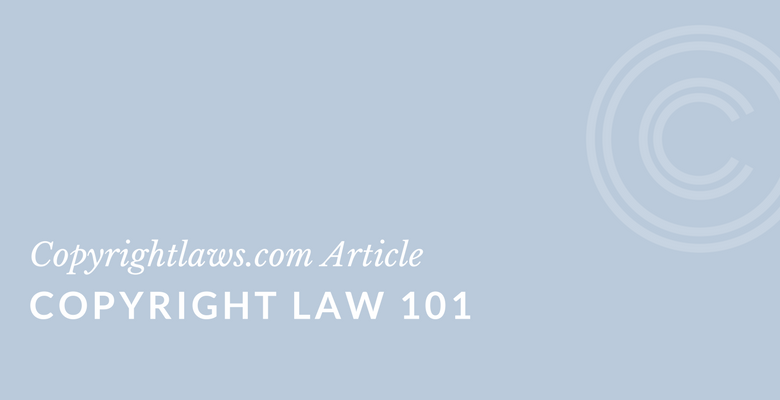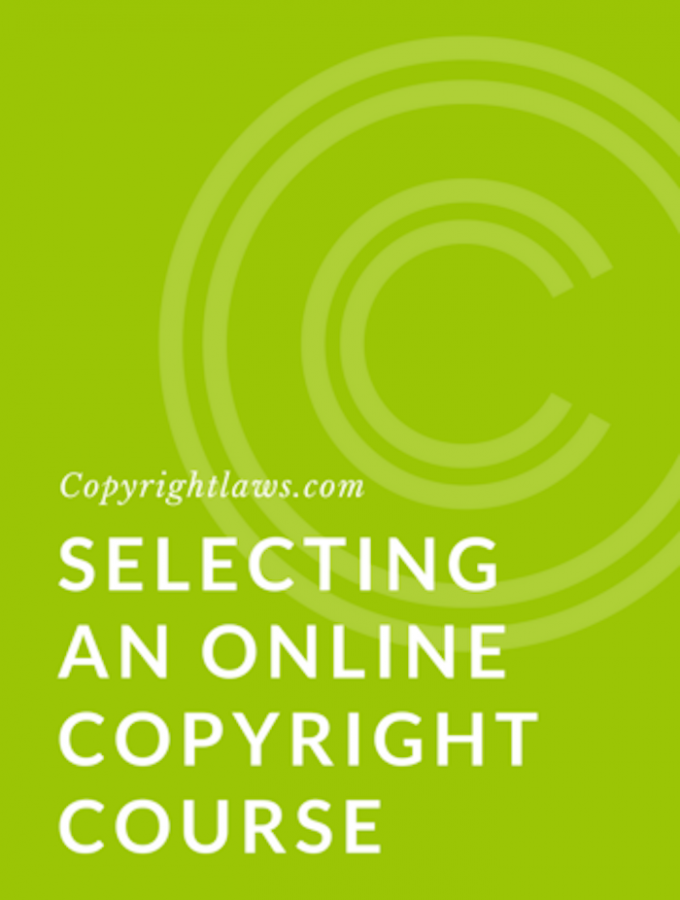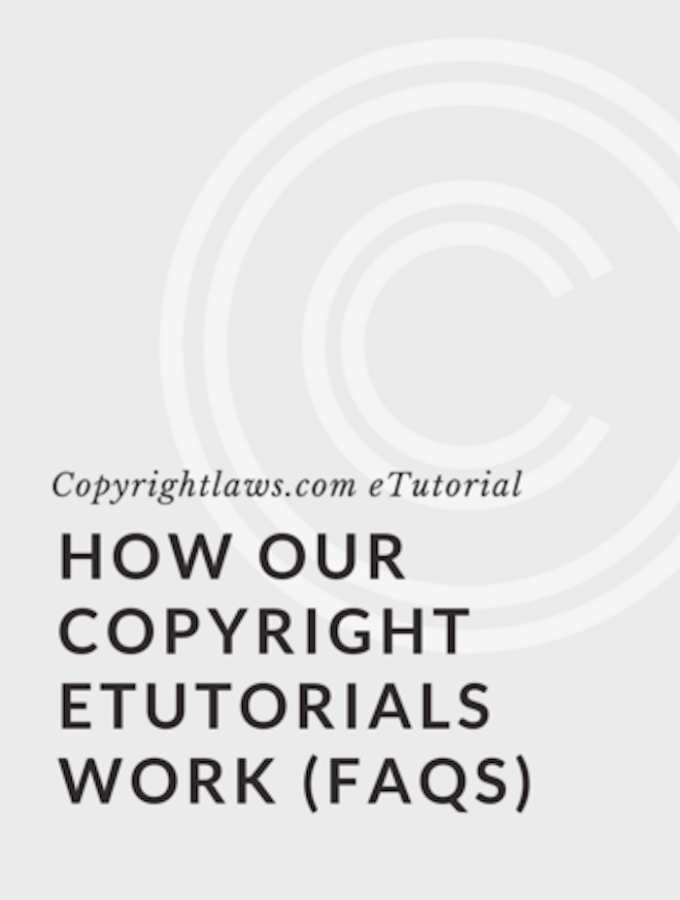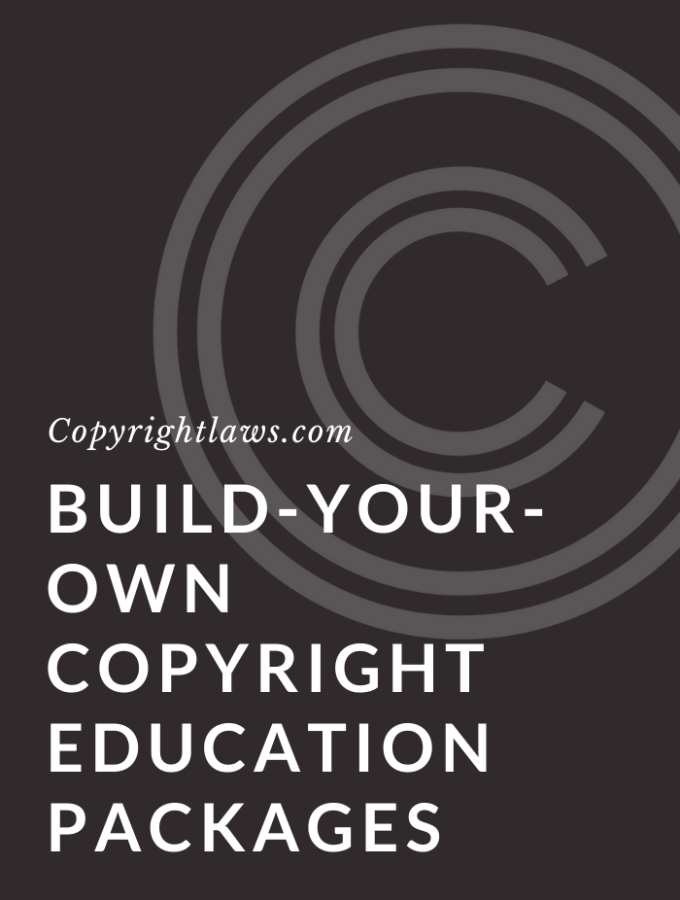Copyright Law 101 is an explainer on copyright law and discusses the various areas of intellectual property (IP), focusing on copyright fundamentals. Enhance your copyright literacy with this overview of copyright basics in this complicated area of law. For more in-depth information, read about our Copyright Leadership Certificate.
Copyright Law and Intellectual Property
Copyright is one of the five traditional areas of intellectual property (IP) law. Each type of IP protects a different kind of creation or a different aspect of a creation, and each type provides its own special set of rules of protection.
The other areas of IP are:
- Patents
- Trademarks
- Industrial designs
- Confidential information/trade secrets
Copyright law protects many different elements in the cultural, information, content, and technology industries. To use more statutory language, copyright law protects literary, artistic, dramatic, and musical works, as well as sound recordings, videos and films. It protects such diverse works as:
- Print and electronic books
- Work documents, including emails
- Images
- Translations
- Website content
- Sculptures
- Films
However, copyright doesn't protect ideas; it protects only the embodiment of ideas.
Copyright Basics
Copyright is a complicated area of the law. The information in this article sets out and demystifies copyright fundamentals in a general and broad manner. You'll need to refer to the copyright law in your own country to obtain specific information on what rights and privileges exist in the copyright law that applies to you and your creations, and how to legally use the content of others.
Copyright Law 101
Copyright is, literally, the “right to copy.” Copyright is comprised of a bundle of exclusive rights, including:
- Reproducing (e.g., photographing, scanning and digitizing)
- Performing in public (e.g., at a concert)
- Publishing in print (e.g., in a book) or in an electronic format (e.g., on the internet)
- Publicly displaying or exhibiting
- Adapting (e.g., a book into a movie script)
- Translating
- Publicly communicating
- Broadcasting
It's only the owner of the copyright who may do these things or authorize others to do so.
Two important tips:
- An author of a work may or may not be its copyright owner.
- The owner of a physical work such as a painting may not be the copyright owner in that painting.
International Copyright Law
There's no one international copyright law. Each country has its own copyright laws. The Berne Convention is the leading international copyright treaty. It has close to 200 member countries around the world — including the U.S. and Canada. Under Berne's principle of national treatment, the citizens of many countries throughout the world are afforded copyright protection in countries other than their own. For example, each one of the Berne member countries automatically provides citizens from other member countries with, at a minimum, the same copyright protections it provides for its own citizens.
Under Berne, copyright protection is automatic upon the creation of a work (once it's in a tangible or fixed form). This means that no registration or deposit with a government copyright office is required in order to have copyright protection.
There are, however, voluntary government registration systems where copyright owners can register their works, thereby gaining entitlement to certain benefits, especially in cases of copyright infringement of their works.
Similarly, the use of the copyright symbol isn't mandatory in Berne member countries. However, using the symbol — © — is always a good reminder to the public that copyright exists in a work.
Duration of Copyright Law Protection
The duration of copyright is determined by the copyright statute in each country. Berne requires a minimum duration of life-plus-fifty (it lasts for 50 years after the author’s death) and in many countries copyright duration is life-plus-fifty. In Canada, the U.S. and European Union countries, however, copyright duration is life-plus-seventy. Specific works and circumstances may result in deviations from these general rules of copyright duration.
Once copyright in a work has expired, that work is said to be in the public domain. See more information on what the public domain is.
Ownership of Copyright-Protected Materials
Generally, the first owner of copyright in a work is its author. An author is usually the person who first fixes a work or puts it in a tangible form, such as in writing, saved digitally, or recorded. However, if you create works in the course of employment, it's likely that your employer owns those employment related works.
Copyright protection gives authors exclusive use of their works and protects the paternity and integrity (i.e., the moral rights) of the author. Neighboring rights protect the rights of performers (for example, actors and musicians), record producers and broadcasters. Neighboring rights are rights akin to but distinct from copyright.
The owner of the copyright in a work may license (give temporary permission) or assign (give permanent permission) to others the right to use or own that copyright-protected work. When granting permission, the copyright owner may grant:
- The full bundle of rights that comprise the work’s copyright, or
- Permission for only some of the rights.
The fee for the use of a copyright-protected work and the nature of the rights granted are usually matters to be negotiated between the copyright owner and user of the right(s).
Exceptions
Copyright law provides for certain instances in which the consumer (i.e., user) of the copyright-protected work doesn't have to obtain permission or pay for that use. Many copyright statutes contain specific exceptions for certain personal uses, limited educational uses, and some library and archives uses (the latter often for purposes of preservation and interlibrary loan).
In addition, the U.S. Copyright Act has a fair use provision, and the copyright laws of many Commonwealth countries such as Canada have a fair dealing provision that allow for usages of copyright-protected works that would otherwise be considered infringements of copyright.
Q&A: Copyright Protection
Do I need a lawyer to register a copyright?
No, most registrations in Canada or the U.S. is fairly straightforward. Visit the Canadian Copyright Office or the U.S. Copyright Office for registration information, forms and fees.
Registration tips:
- Note that registration is not required in most countries, including Canada and the U.S.
- Registration can, however, provide advantages should you ever have to initiate a legal action for copyright infringement.
I've registered my copyright works (e.g., photographs) with the Copyright Office and am going to post them on my blog. How do I indicate that they're protected by copyright?
Your works are protected by copyright once they're in some sort of fixed form; registration is not mandatory in Berne Convention countries. Registering your works is helpful if you ever want to enforce your rights in a legal suit. Although you don't need to include a copyright symbol when you post your works online, it's always a good idea to do so to remind others that copyright exists in your works. For more information, see The International Copyright Symbol.
I've found a slogan I'd like to use in an article for publication. Is the slogan protected by copyright?
Generally, copyright doesn't protect slogans. The U.S. Copyright Office states that “titles, names, short phrases, and slogans; familiar symbols or designs; mere variations of typographic ornamentation, lettering, or coloring; mere listings of ingredients or contents” aren't protected by copyright. However, be aware that if a slogan is associated with a product or service, it may have trademark protection.
I'm writing a book on copyright law for laypeople. I'm not a lawyer and much of my research is from other books on copyright, rather than giving my opinion on the Copyright Act and court cases. Is this legal?
There's no copyright in ideas, facts or information. Therefore, you may use the ideas, facts or information in the books you are using for research purposes. However, you may not reproduce the exact wording from these books.
How do you know if content on a website is protected by copyright?
It's best to assume that all content on a website is protected by copyright unless and until you investigated determine otherwise. Treat website content as you would any other content. Check for any copyright notices and statements about whether you may use the content in specified circumstances without first obtaining permission (e.g., in a nonprofit setting). Be careful in using any older works that appear to be in the public domain, as adapted portions of these works may be protected by copyright.
What types of U.S. government works are protected by copyright?
An example of a copyright-protected U.S. government work is a work prepared by a consultant (non-federal government employee). In this situation, the government may obtain an assignment of copyright from the consultant, in which case there would be government ownership of copyright in that consultant's work. If a federal government employee prepares a document, then there is no copyright protection in that document and anyone may freely use it. For more information, see Copyright in U.S. Government Works.
If someone makes an unscripted speech is it protected by copyright?
For a work to be copyright protected, it must be in a "fixed" form; in other words, it needs to be in a tangible medium of expression, like a handwritten letter, a drawing, saved to a computer file, a camera memory card, et cetera. Therefore, unscripted speeches aren't copyright-protected works until they are transcribed or recorded.
I have an idea for a television show that I'd like to submit to a TV producer. If they like my idea, are they obligated to hire me to write the show or may they hire a different writer?
Generally, a TV producer will only accept your idea submission from an agent or lawyer, and the producer will ask you to sign a release form. The release will state that you're submitting your idea with no obligation, that it's possible that the producer is already working on ideas similar to yours, and that the producer is under no obligation to you. So, yes, the producer may create and develop a show similar to your idea, using a different writer.
Does the Copyright Act provide information on using Creative Commons Licenses?
No, CC licenses are licenses or agreements which copyright owners voluntarily place on their online content as a way to simplify rights permissions for them and provide greater access to their online content. For information on the various CC licenses and practical advice choosing the right license, visit Creative Commons.
Want further information on copyright law in plain English?
See our online copyright courses.




